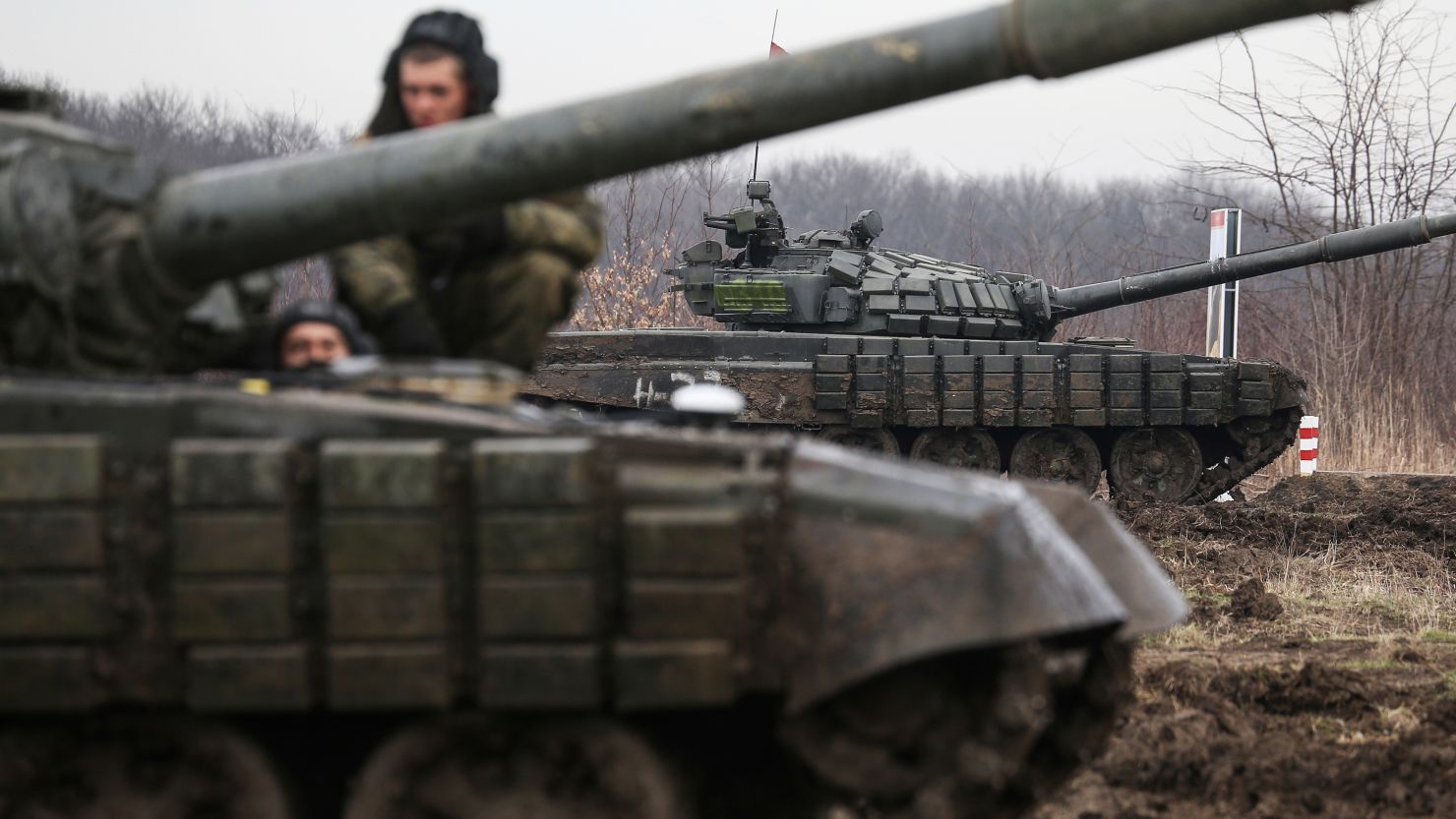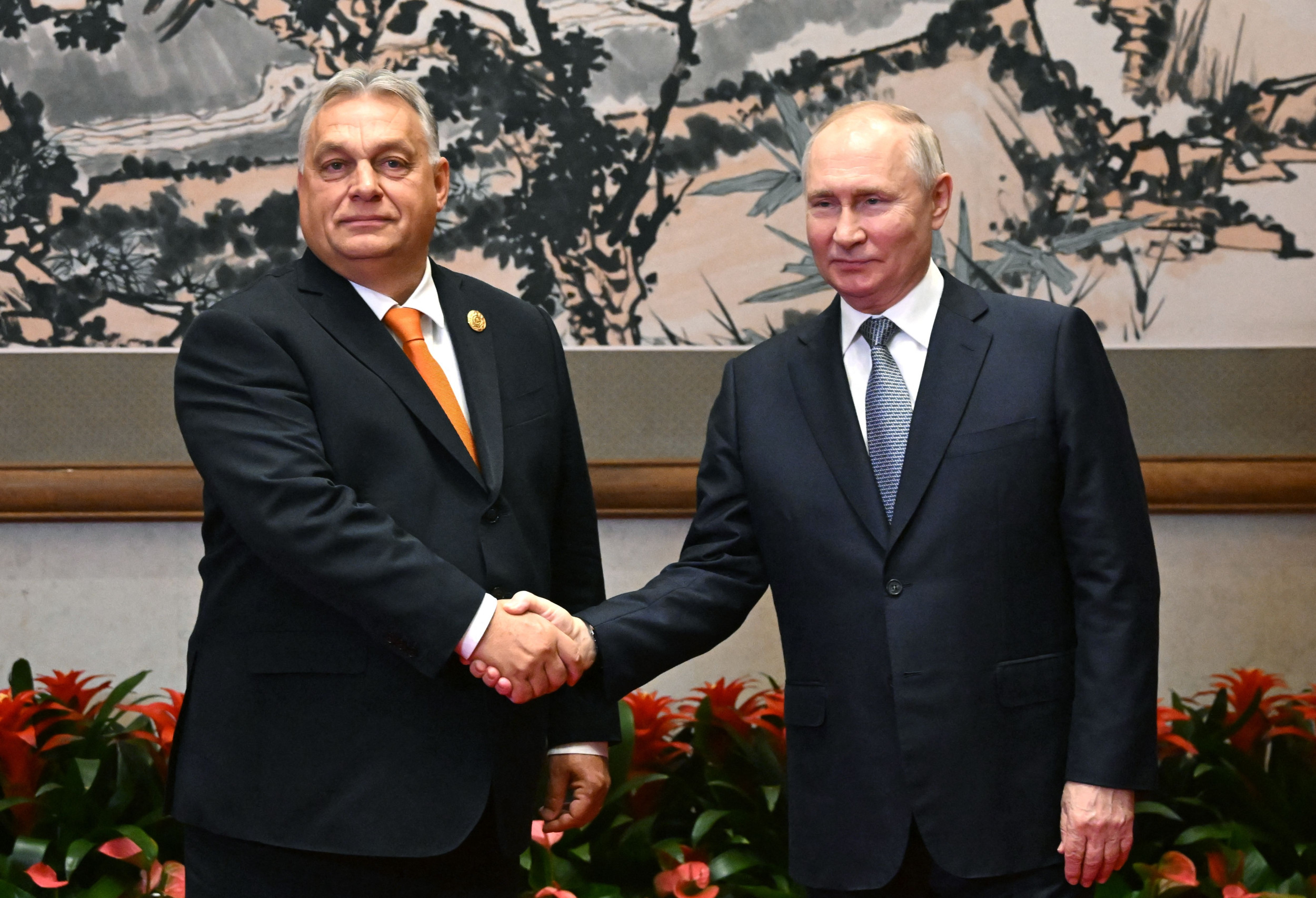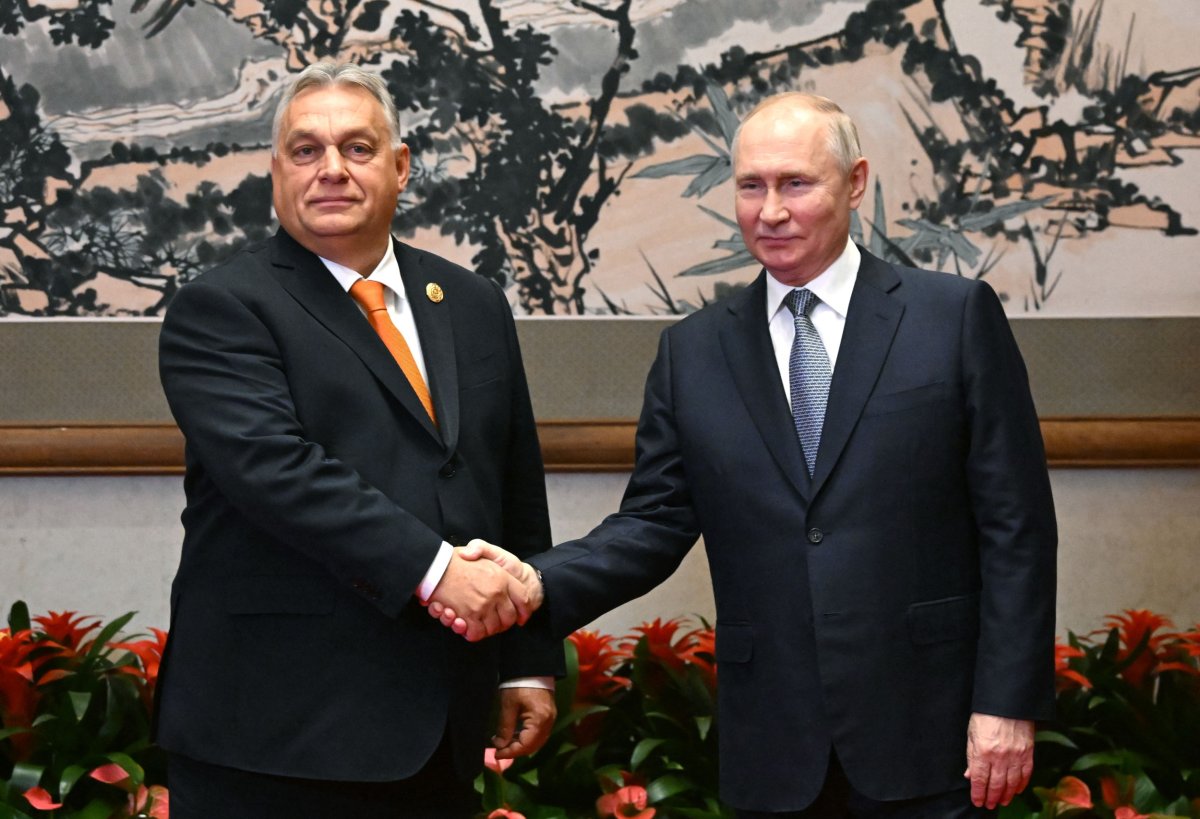Russia has lost 87% of troops it had prior to start of Ukraine war, according to US intelligence assessment
By Katie Bo Lillis, CNN
4 minute read
Updated 1:00 PM EST, Wed December 13, 2023

File photo showing Russian tanks taking part in a military drills at Molkino training ground in the Krasnodar region, Russia, Tuesday, Dec. 14, 2021.
AP
CNN —
Russia has lost a staggering 87 percent of the total number of active-duty ground troops it had prior to launching its invasion of Ukraine and two-thirds of its pre-invasion tanks, a source familiar with a declassified US intelligence assessment provided to Congress told CNN.
Still, despite heavy losses of men and equipment, Russian President Vladimir Putin is determined to push forward as the war approaches its two-year anniversary early next year and US officials are warning that Ukraine remains deeply vulnerable. A highly anticipated Ukrainian counteroffensive stagnated through the fall, and US officials believe that Kyiv is unlikely to make any major gains over the coming months.
The assessment, sent to Capitol Hill on Monday, comes as some Republicans have balked at the US providing additional funding for Ukraine and the Biden administration has launched a full-court press to try to get supplemental funding through Congress.
Ukrainian President Volodymyr Zelensky is in Washington on Tuesday, meeting with US lawmakers and President Joe Biden in desperate bid to secure the military and economic aid he says is vital to Ukraine’s ability to maintain the fight against Russia.
Russia has been able to keep its war effort going despite the heavy losses by relaxing recruitment standards and dipping into Soviet-era stockpiles of older equipment. Still, the assessment found that the war has “sharply set back 15 years of Russian effort to modernize its ground force.”
Of the 360,000 troops that made up Russia’s pre-invasion ground force, including contract and conscript personnel, Russia has lost 315,000 on the battlefield, according to the assessment. 2,200 of 3,500 tanks have been lost, according to the assessment. 4,400 of 13,600 infantry fighting vehicles and armored personnel carriers have also been destroyed, a 32 percent loss rate.
“As of late November, Russia lost over a quarter of its pre-invasion stockpiles of ground forces equipment,” the assessment reads. “This has reduced the complexity and scale of Russian offensive operations, which have failed to make major gains in Ukraine since early 2022.”
CNN has reached out to the Russian Embassy in Washington for comment.
But it is the political environment in Washington that presents perhaps the greatest peril for Ukraine. Some Republicans are stiffly rejecting any additional funding and Senate Republicans are insisting on making it part of a broader spending package to include money for Israel, Taiwan and the US southern border. The Biden administration is warning that the US will soon be out of money for Ukraine.
“The idea that Ukraine was going to throw Russia back to the 1991 borders was preposterous,” Sen. J.D. Vance, a Republican from Ohio, said on CNN’s State of the Union on Sunday. “So what we’re saying to the president and really to the entire world is, you need to articulate what the ambition is. What is $61 billion going to accomplish that $100 billion hasn’t?”
Other newly declassified intelligence previously reported by CNN suggests that “Russia seems to believe that a military deadlock through the winter will drain Western support for Ukraine and ultimately give Russia the advantage despite Russian losses and persistent shortages of trained personnel, munitions, and equipment,” according to a National Security Council spokesman.
“Since launching its offensive in October, we assess that the Russian military has suffered more than 13,000 casualties along the Avdiivka-Novopavlivka axis and over 220 combat vehicle losses-the equivalent of 6 maneuver battalions in equipment alone,” NSC spokesperson Adrienne Watson told CNN.
Before the invasion, Russia had a total standing military of approximately 900,000 active-duty troops, including ground troops, airborne troops, special operations and other uniformed personnel, according to the CIA. Since the start of the invasion, Russia has announced plans to increase the size of the armed forces to 1.5 million. The Russian Ministry of Defense has announced several rounds of conscription, including its regular fall conscription cycle on October 1.
Russia has also leaned heavily on convicts marshaled to the fight by the Wagner Group and has increased the age limit for certain categories of citizens to remain in the reserve of the Armed Forces of the Russian Federation.
This story has been updated with additional details.
The same US intelligence looking for those WMD’s in Iraq still?









